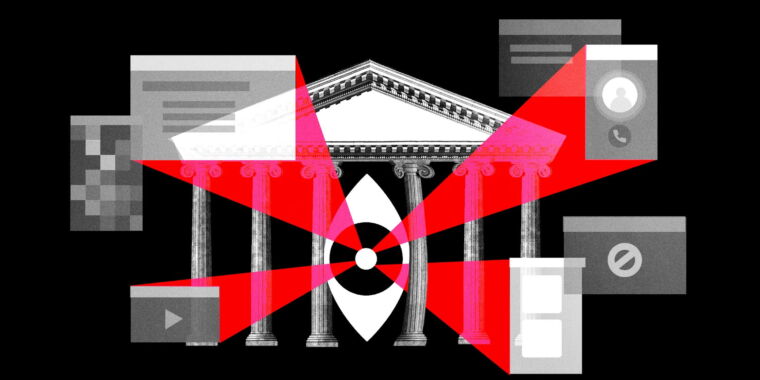“This is the most extreme type of monitoring that I’ve seen,” says Pilar Weiss, founder of the National Bail Fund Network, a network of over 90 community bail and bond funds across the United States. “It’s part of a disturbing trend where deep surveillance and social control applications are used pretrial with little oversight.”



Except for the “instantaneous” and “Lightspeed” observations, which I think are the real key here. Also, commiting a book crime would require conscious cooperation and coordination with another person/people (the publisher), whereas internet crimes can be done completely solo.
I think a more sensible comparison could be made between computers and telephones or telegraphs
It’s more efficient, certainly. But telling someone pretrial in 2023 they can’t use a computer isn’t realistic.
In large part I agree, however, it leaves a problem unsolved.
In the case of cp possession/production, how do you effectively sanitize a person’s internet traffic?
I think providing devices that only connect to state DNS servers, and only serve approved content could be one way. But it also raises privacy concerns.
Honestly I would argue it doesn’t matter in either case.
If it is about possession, there just isn’t enough of a negative effect from allowing someone to look at that stuff for another month or so to justify serious infringement on rights without a conviction. The abuse has happened, and a single individual looking at it some more won’t affect things much. And after an actual conviction they’ll just be in prison, or after release you would have a justification to monitor at least their own internet traffic.
If it’s about production, the internet traffic isn’t likely to be the problem. Someone sexually abusing children isn’t likely to stop just because they can’t put it on the internet anymore. At that point you’d rather need to keep them away from children in the first place.
Well, I’m happy to say I have no idea how the consumption of cp works, but I imagine it’s not ad supported. Perhaps you can find it for free, but if you’re paying for it, than stemming the flow of funding for child abuse seems worthwhile. Also, do people really get through trail in ~1 month?
Part of the premise of the criminal justice system is supposed to be that the system is designed to occasionally fail to punish the guilty if it protects the innocent. That’s often expressed as, “it’s better to let 10 guilty men go free than 1 innocent man go to prison.”
You might just have to accept that you can’t always be completely sure that someone’s internet usage is sanitized. Could they reoffend awaiting trial? Possibly. Same as letting an alleged mugger walk the streets until trial or an alleged rapist be around women. Innocent until proven guilty means that, as it stands right now until a verdict otherwise is returned, an innocent man and his family are having their right to use a very basic feature of modern existence, the internet, infringed upon.